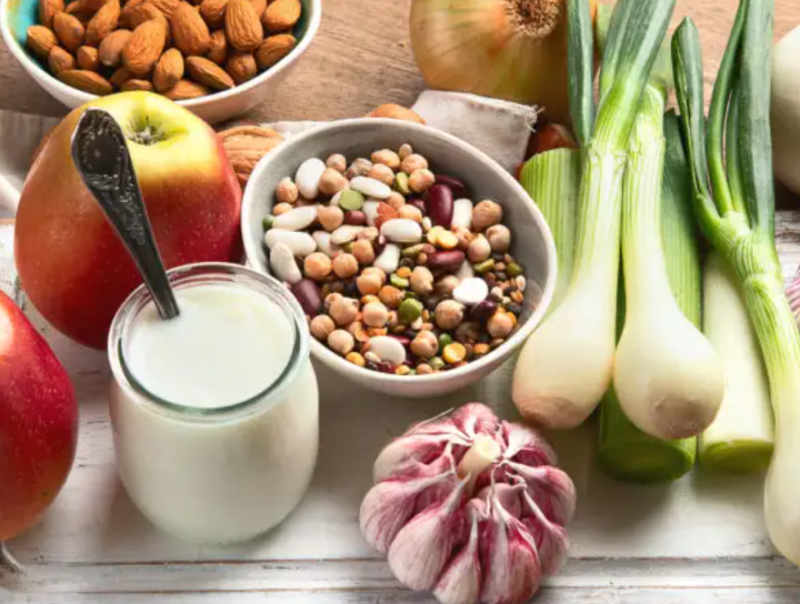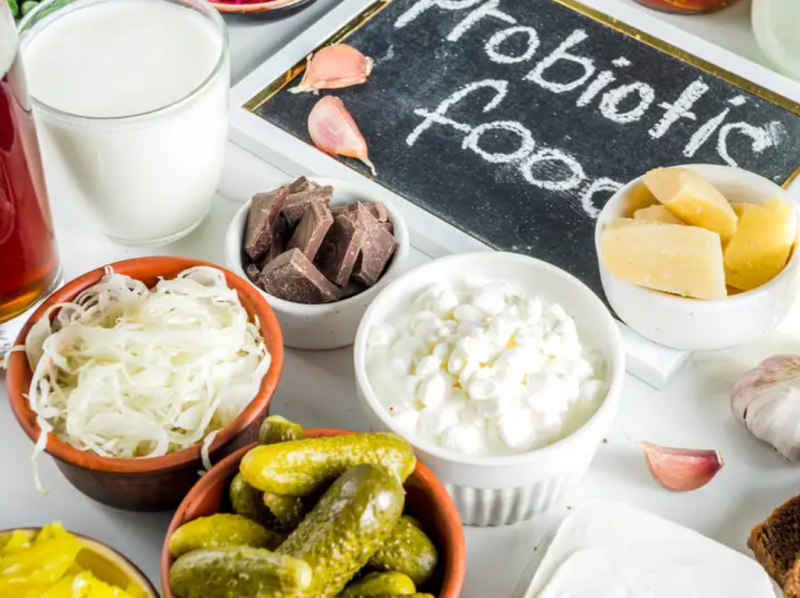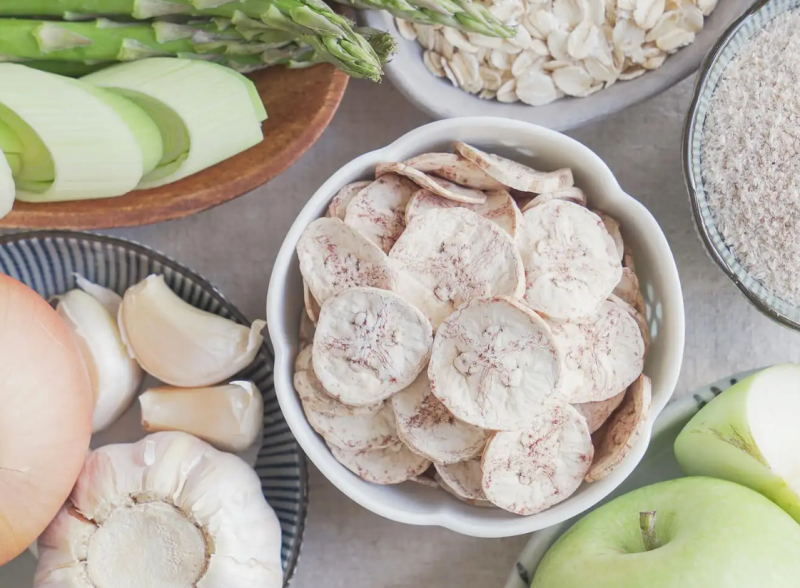
Within a balanced diet, eating probiotic and prebiotic foods is very beneficial for the health of the whole organism for various reasons, starting with the fact that they contribute to good digestion and the maintenance of the intestinal microbiota.
Based on this, here is a list of the best probiotic and prebiotic foods you can regularly integrate into your diet. Take note!
Contents
Prebiotics and probiotics: characteristics of each one
Indeed you are more than used to seeing those commercials on television in which different types of yogurt are enriched with the so-called “good bacteria.” These probiotics, including classic white yogurt, kefir, sauerkraut, or miso soup, help us strengthen intestinal microbiota.
Now, what about prebiotics? What are they? Do they also provide us with good bacteria? Are they digestive microorganisms? Next, we will delve into all these aspects.
Probiotics

The World Health Organization (WHO) defines probiotics as: “live microorganisms that, administered in adequate amounts, produce a beneficial effect on health.”
They are intestinal bacteria that allow us to stimulate digestive juices and natural enzymes to achieve proper digestion. It is advisable always to consume organic or wild probiotic foods.
It may scare us a little to think that the digestive system is “colonized” by a whole series of bacteria. It is known as intestinal microbiota; In addition to being vital for health, it is susceptible to the type of diet we follow, stress, certain diseases, and types of medications.
At the same time, these microorganisms act as an immune mechanism in the intestinal mucosa. Its function is to prevent pathogens from multiplying and causing disturbances.
Consuming probiotics such as fermented milk also protects us against many diseases. However, we emphasize the term “fermented.” Natural dairy ─unpasteurized─ can be, in some instances, more toxic than beneficial for the intestine because what it does is inflame in case we suffer from intolerance.
prebiotics
Prebiotics are a type of carbohydrate that serves as a substrate for probiotics. They are components that the intestine does not digest but serve as a structural base to offer strength to living microorganisms that protect us against harmful elements.
It is clear, then, that prebiotics and probiotics are closely related. The function of the former is to stimulate the immune system and promote the development of beneficial bacteria in the intestinal flora, preventing the growth of pathogens.
Prebiotics help us absorb some minerals like calcium and magnesium. They also contribute to the reduction of gases and favor intestinal balance. Another of its benefits is that they combat constipation and inflammatory bowel disease.
The best probiotics you can consume daily

1. Kefir
Kefir is fermented cow’s or goat’s milk. It has an acid flavor and feels excellent thanks to its fermentation process, which is when the presence of the original milk sugar is reduced to the maximum.
You can consume liquid or granule kefir, a highly recommended breakfast option. It is one of the foods richest in living microorganisms, capable of strengthening and caring for the health of the intestines.
If we consume kefir regularly, it will help us eliminate pathogenic bacteria that populate the intestine. Many times, they are responsible for causing gastroenteritis.
2. Sauerkraut
We could say that after kefir, sauerkraut —sauercroute or sauerkraut— is the second most beneficial food for bacterial flora. Sauerkraut is fermented white cabbage or cabbage rich in lactobacillus and bifidobacterium.
This food improves the intestinal flora, restores the pH of the small intestine, promotes digestion, and allows better absorption of nutrients. Fermented cabbage contains vitamins A, B1, B2, and C and minerals such as iron, calcium, phosphorus, and magnesium.
Other foods with probiotic principles
- Plain yogurt.
- Miso soup.
- Kombucha tea.
- Olives.
- Dark chocolate.
The best prebiotic foods for everyday life

artichokes
According to studies, artichokes, in addition to being very healthy for the liver, are one of the most suitable prebiotic foods. They contain between 3% and 20% inulin, one of the most frequent prebiotics.
Chicory root
Chicory root is the second most decadent food in prebiotic components ─such as inulin. You can find it in natural stores to include it in your meals or prepare suitable natural infusions.
Garlic
Garlic contains around 15% inulin. What do you think about taking natural garlic with a glass of water every morning? Your health will thank you!
Onion
Onions contain between 5% and 8% inulin; you can eat them raw or cooked. Also, as you already know, it is a common ingredient in many meals and salads.
Leek
It will offer you between 3% and 10% inulin. It is also perfect for improving the health of your intestinal microflora, the elemental function of prebiotics and probiotics.
wheat bran
Wheat bran is another of the prebiotic foods that you can include in your diet. It will offer 5% of these substances that are so positive for the digestive system and general well-being.
Wheat flour
Eating it cooked and always in moderation so as not to gain weight will offer you 5% prebiotics. Again, this is a commonly used ingredient.
Banana
If you love bananas, eat them whenever you want. Although it is true that it only provides us with 0.5% inulin, combined with other foods on the list cited here, it will stimulate intestinal bacteria to take care of your health.
Read: Types of fibers that help the microbiota the most
Consuming the foods on this list, always within a healthy and balanced diet, you can change, improve your gastrointestinal health and enjoy well-being. You already know prebiotics and probiotics have much to offer and should be regularly integrated into the diet, always trying to maintain balance.
If you have questions about improving your diet, consult your doctor or nutritionist.